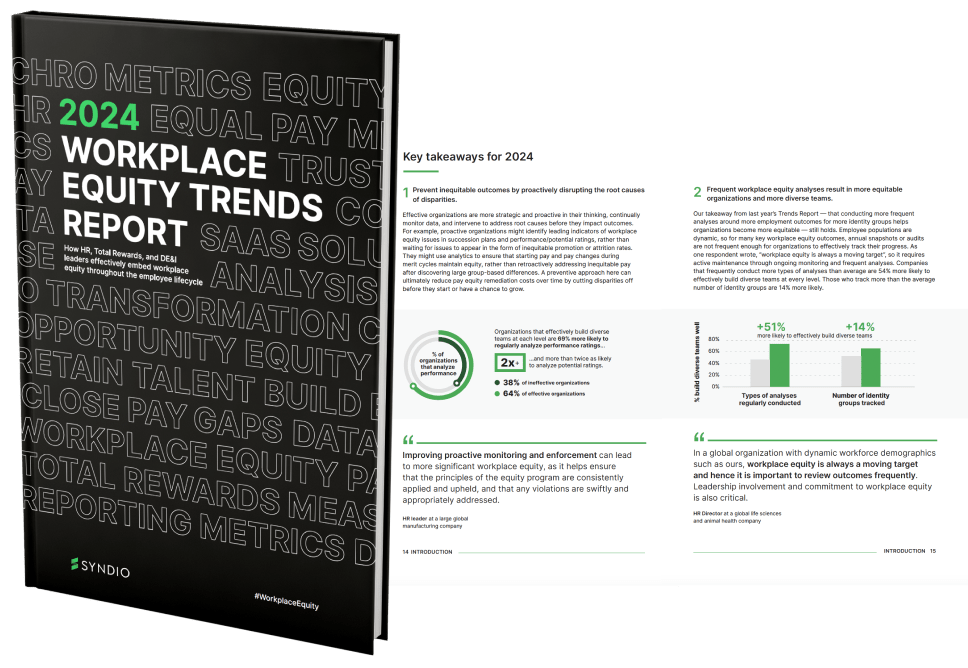The 2024 Workplace Equity Trends Report
How HR and Total Rewards leaders effectively embed workplace equity throughout the employee lifecycle

Workplace equity is here to stay.
Enrich your 2024 planning with insights from the latest Workplace Equity Trends Report.
Syndio surveyed HR, Total Rewards, and DE&I leaders and professionals to take the pulse of current priorities and sentiment around workplace equity initiatives. This year’s findings spotlight how effective organizations embed workplace equity throughout the employee lifecycle, fostering diversity and equitable outcomes. Discover:
- Which components of performance reviews need an overhaul
- How pay equity leaders are expanding their analytical focus and planning ahead
- Which employment outcomes beyond pay are crucial to measure and track
- Why benchmarking and transparency are hallmarks of mature workplace equity programs
66% of practitioners — and 86% of those at enterprise organizations — believe their workplace equity programs will continue to be a priority for the next 24 months.
Below are a few of the key takeaways to level up your workplace equity programs next year.

Performance reviews need a review.
Performance management is a major entry point for bias in the employee lifecycle as it often relies heavily on manager discretion and subjective evaluations. Effective organizations proactively guard against that bias by analyzing performance and potential ratings through the lens of employee identity groups.
Organizations that effectively build diverse teams are more likely to regularly analyze performance ratings and potential ratings for bias.

Pay equity leaders plan ahead for remediation and analyze more than just base pay.
Most organizations have a budget they can use for pay equity remediation, including the vast majority of mature workplace equity programs. Mature programs are also 35% more likely to conduct a pay equity analysis of long-term incentives.
Mature programs are 57% more likely to have a budget for pay equity remediation.

Companies should look at employment outcomes beyond pay.
Workplace equity is about much more than compensation. Organizations that effectively build diverse teams at every level are more likely to analyze equity across the employee lifecycle.
Organizations that effectively build diverse teams regularly conduct more analyses for group-based impacts.

Mature organizations don’t just track and benchmark demographic data — they share it.
Mature programs share demographic data more deeply throughout the organization: less mature organizations are 2.7x more likely to restrict diversity reports to the C-suite only, while mature organizations are more likely to share data down to the VP or Director level. Additionally, effective organizations are 14% more likely than ineffective organizations to share demographic information with leaders more frequently than annually.
Less mature organizations are more likely to restrict demographic data.
Want to participate in the next survey?
Share these insights with your network.
Looking for the 2023 Workplace Equity Trends Report? Get it here.